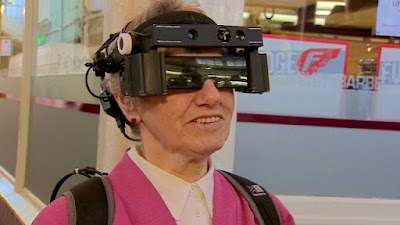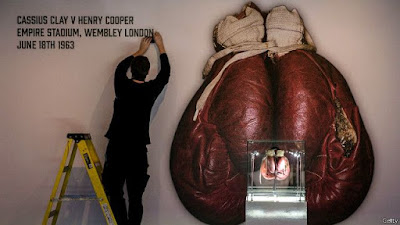
Các nhà nghiên cứu từ Đại học Oxford chế tạo kính giúp tăng khả năng quan sát cho người khiếm thị.
Biên tập bởi YeuTiengAnh.com. Nguồn BBC.
Hướng dẫn học bài
Bạn hãy xem và nghe video tại mục (1.), và học các từ vựng trong bài tại mục (2.).
Cố gắng nghe hiểu mà không xem bài khoá (transcript) và bài dịch (translation) để hoàn thành bài tập tại mục (3.).
1. Video - Xem và nghe video bài học
Transcript - Bài khoá
They might not win any awards for style, but these prototype glasses are helping partially sighted people to see.
They project enhanced images onto lenses, giving wearers a clearer sense of surroundings.
Users say they feel more independent. Some see their guide dogs for the first time.
They were developed by researchers from Oxford University, who say the bulky headsets will eventually be the same size as a pair of specs.
Translation - Bài dịch
Có thể không đoạt giải sành điệu, nhưng những cặp kính nguyên mẫu này giúp cho người khiếm thị có thể nhìn được.
Chúng đưa những hình ảnh đã được tăng chất lượng vào mắt kính, giúp người đeo cảm nhận được rõ ràng hơn về môi trường xung quanh.
Người dùng nói họ cảm thấy độc lập hơn. Một số người còn lần đầu tiên nhìn thấy được thấy chú chó dẫn đường của mình.
Loại kính này được phát triển bởi các nhà nghiên cứu trường Đại học Oxford, những người nói các bộ đeo cồng kềnh rốt cuộc sẽ được làm với kích thước nhỏ như chiếc kính.
2. Vocabulary - Học từ vựng
prototype: nguyên mẫu
partially sighted: khiếm thị
enhanced: cải thiện, nâng chất lượng
bulky: to quá, cồng kềnh
specs: mắt kính







Recent comments